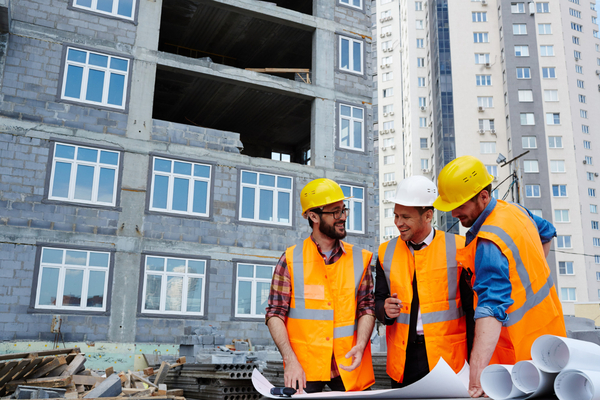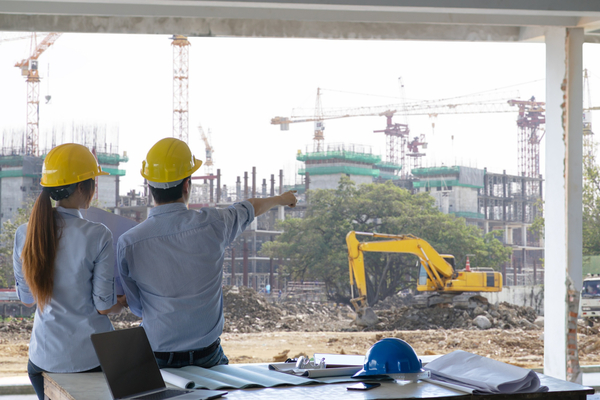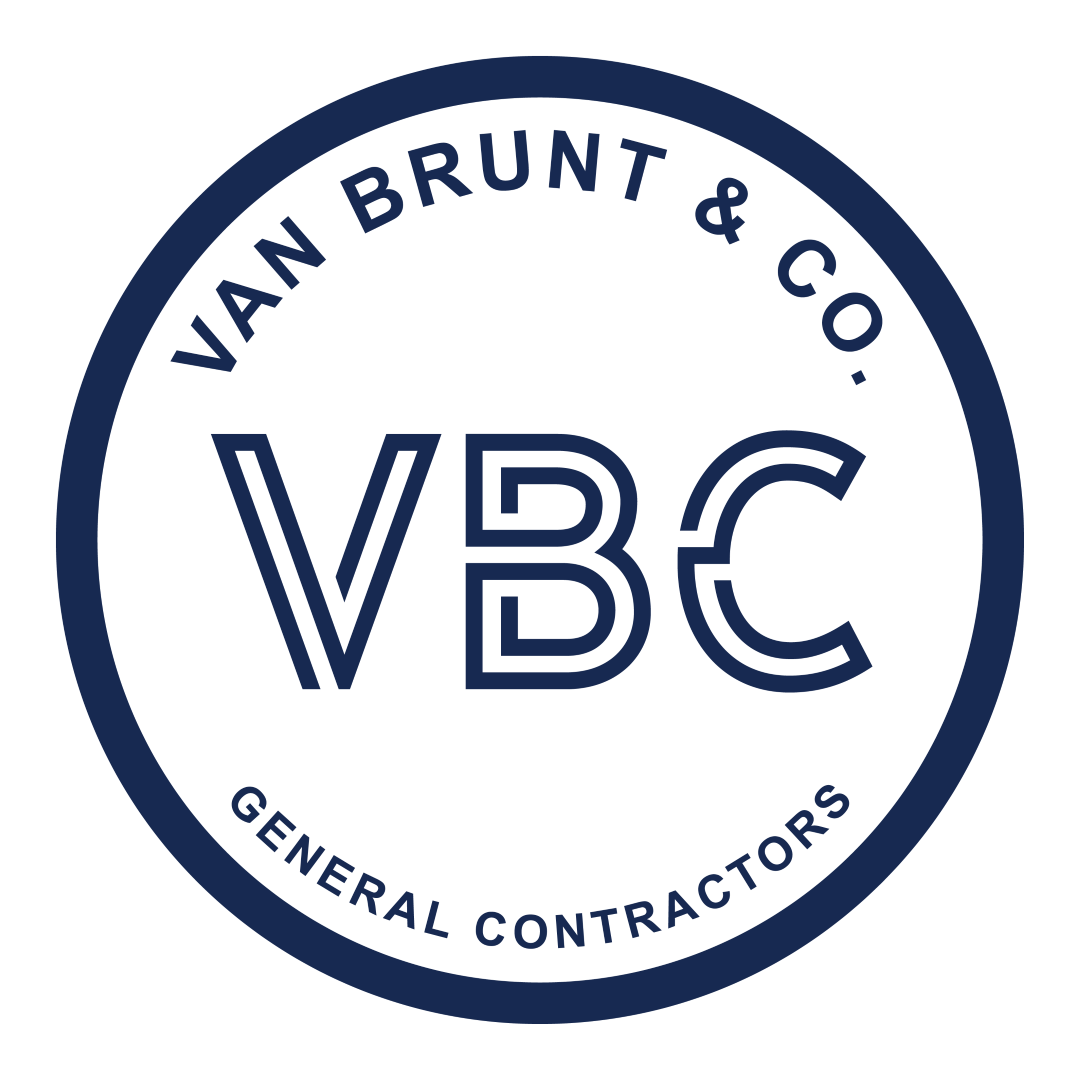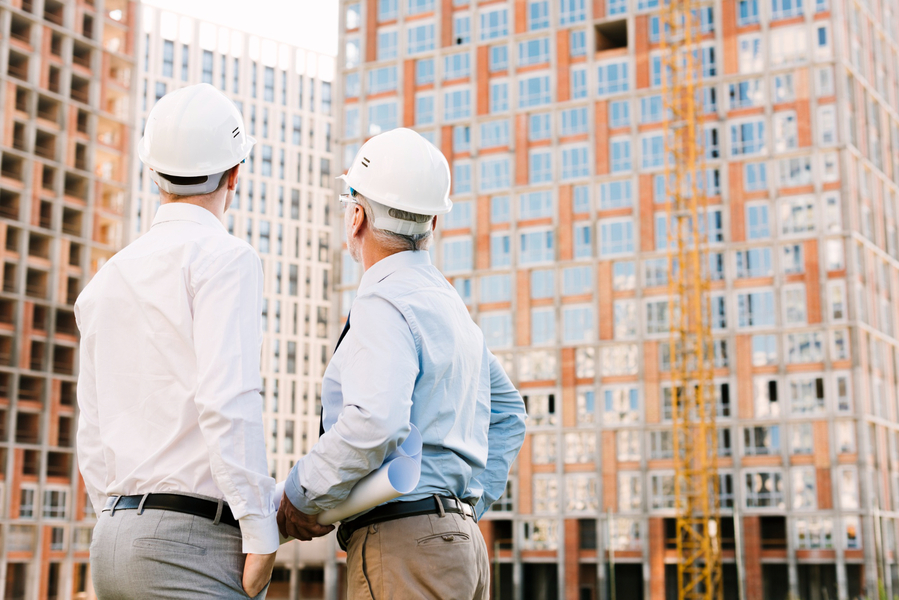Understanding the differences between commercial and residential construction goes beyond just size and purpose. Residential buildings are designed for people to live in, while commercial buildings support businesses or organizations. Commercial projects tend to be bigger and more complex, which means they demand stronger project management skills.
Another major difference is cost. Commercial construction often involves higher budgets due to larger structures and advanced systems. These projects also require more durable materials, which adds to the overall expense. Timelines for commercial buildings are usually longer as they include stricter regulations and more detailed planning.
Residential construction, on the other hand, typically moves faster and uses more standard materials. It’s also more budget-friendly and straightforward to manage. Knowing these differences helps in making better planning and budgeting decisions for any construction project.

Understanding Different Types of Construction Projects
Residential construction focuses on building spaces where people live either temporarily or permanently. These homes can house individuals, families, or groups. The design often prioritizes comfort, functionality, and livability based on the residents’ needs.
There are many types of residential properties. These include single-family homes, condominiums, and townhouses. Duplexes, triplexes, and fourplexes are also common in urban areas. Other residential options include mobile homes, dormitories, co-ops, and suburban housing communities. Each type is built to suit different living arrangements and budgets.
Commercial construction supports various businesses and organizations. The design and size of these buildings depend on their intended use. Commercial spaces need to meet specific requirements for safety, accessibility, and daily operations.
Common commercial buildings include offices, restaurants, and retail stores. Hotels, healthcare centers, and educational facilities also fall under this category. Other examples are parking garages, storage units, large apartment complexes, and places of worship. These projects often involve more planning and regulatory approvals than residential ones.
Beyond residential and commercial projects, industrial construction plays a major role in development. It includes building warehouses, factories, data centers, and distribution hubs. These facilities support production, storage, and logistics operations for many industries.
Infrastructure construction supports essential public systems and services. Projects include bridges, roads, railways, and airports. Other examples are water systems, power grids, telecommunications networks, and recreational facilities. These structures keep cities functioning and connected every day.

What Are the Key Differences Between Commercial and Residential Construction?
Residential and commercial construction serve different purposes and follow different processes. Knowing how they differ helps in planning and execution. From project scope to required materials, understanding these details leads to smarter decisions and smoother construction outcomes.
Site Location and Construction Setup Vary Greatly
Residential buildings are often built in neighborhoods with limited space and nearby homes. Crews must minimize noise and disruption. Work hours are typically restricted to respect residential peace and local regulations.
Commercial sites are usually much larger and located in business zones. These projects require more advanced planning and longer permitting. Commercial zones allow extended work hours, enabling faster progress. Because these areas often involve valuable equipment, they also demand enhanced security systems to prevent theft.
Choosing the right site for either type involves zoning laws, land use regulations, and potential impact assessments. These factors directly affect cost, speed, and design.
Construction Materials Differ by Project Type
Residential construction generally uses timber framing, drywall, and standard plumbing and electrical components. These materials are cost-effective and easier to install. They’re ideal for homes, duplexes, and small living units.
Commercial buildings use stronger and more durable materials like steel, concrete, and reinforced glass. These materials support larger structures and meet strict safety standards. Commercial projects also need more wiring, rebar, and heavy-duty plumbing systems.
These material differences require specialized contractors who understand how to install and manage them properly.
Cost and Funding Options Are Not the Same
Commercial projects are significantly more expensive than residential builds. Costs increase due to size, material requirements, and labor needs. Advanced equipment, permits, and safety measures add to the budget.
Funding for commercial projects often comes from large developers, investment firms, or government grants. Residential construction is usually financed through homeowner savings, mortgage loans, or local assistance programs. Some government agencies support low-income housing to expand affordable residential options.
Understanding how to secure funding is critical to keeping any project on schedule and within budget.
Building Codes and Permits Are Stricter for Commercial Projects
All construction must follow local codes, but commercial rules are more complex. These regulations cover safety, fire protection, and accessibility. Requirements may include handicap access, elevators, sprinkler systems, and specific materials.
Residential projects must still follow codes, but they are generally less strict. Homebuilders mainly need to meet basic safety and zoning standards.
Permit approval for commercial buildings usually takes longer due to in-depth reviews and multiple inspections. Early planning helps avoid delays.
Project Timelines Depend on Scope and Size
Commercial projects often finish faster, despite their size. Tight deadlines are enforced to meet business openings and investor timelines. These builds use large teams and multiple shifts to speed up progress.
Residential construction may take longer, especially when buyers request custom features. Projects are smaller but can face delays due to weather, material shortages, or design changes.
Sticking to a timeline is important in both cases, but commercial construction demands faster execution.
Tools and Equipment Needed Vary by Project Type
Residential construction typically uses standard tools like drills, saws, and small loaders. Projects are small enough for basic equipment.
Commercial construction needs large machinery like cranes, earthmovers, and cement mixers. This equipment handles heavier materials and larger volumes.
The type of machinery impacts project cost, time, and worker skill requirements.
Customization Levels Are Different
Residential projects allow more freedom in design. Homeowners often personalize layouts, finishes, and room features before and during the build.
Commercial projects focus on functionality and regulatory compliance. Customization is limited to what supports business use and meets safety laws.
While commercial buildings may still offer design choices, flexibility is more restricted due to scale and legal standards.
Worker Skills and Management Complexity
Residential builders can work in smaller teams with fewer specialties. These projects often require general contractors and subcontractors.
Commercial projects demand a larger, more skilled workforce. Electricians, engineers, architects, and project managers must work closely together. Coordinating large teams and specialized tasks requires advanced management skills.
Project managers for commercial jobs must track deadlines, budgets, inspections, and supply chains at every stage.
Conclusion
Choosing the right construction company plays a major role in the success of your project. The firm must have proven experience with the specific type of construction you need. Whether you’re building a home, office, or warehouse, the company should understand the project’s unique demands.
Look for a contractor with a strong reputation and a history of delivering quality results. Check their previous projects, client reviews, and industry credentials. A trustworthy construction firm will stick to timelines, follow safety regulations, and keep communication clear throughout the process. Taking the time to choose a reliable expert helps avoid delays, unexpected costs, and costly mistakes later.
Frequently Asked Questions
What insurance coverage should a construction company have before starting a project?
They should carry general liability, workers’ compensation, and builder’s risk insurance. This protects both the client and the crew.
Can a residential contractor legally take on a commercial project?
Not always. Commercial projects require specific licenses and certifications that residential contractors may not hold or qualify for.
How does weather affect commercial vs. residential construction timelines?
Weather delays affect both types, but commercial projects often have backup plans and larger crews to recover faster.
Are green building practices different in commercial and residential construction?
Yes. Commercial buildings often follow strict sustainability certifications like LEED, while residential builds may use basic eco-friendly methods.
What are common hidden costs in construction projects?
Unexpected costs often include permit delays, material price increases, design changes, or site preparation issues. Always include a buffer in your budget.

